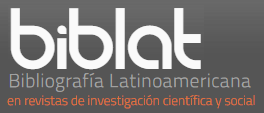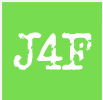Constructivism, methodological pluralism, and teacher formation for natural sciences teaching
DOI:
https://doi.org/10.5433/1679-0367.2005v26n2p83Keywords:
Science Education, Constructivism, Methodological Pluralism, Teachers Formation.Abstract
Based on renowned authors of the Science Education area, this work intends to show that the constructivist background is not a unanimity in Natural Sciences teaching, both in the epistemological and ontological scopes. Thus, the following question was defined as the problem to be investigated: Would the Science Education authors’ criticism against the epistemological and ontological presuppositions and their pedagogical consequences, indicate that the knowledge for natural sciences teaching is supposed to be originated not only from strategies centered on the student, but also from a methodological pluralism? In order to answer this question, the following objectives were delineated: 1) to survey, analyze and complement several authors’ objections to constructivism in Science Education in the epistemological, ontological and pedagogical fields; 2) in possession of these criticism, and as a consequence of them, to propose Paul Feyerabend’s “methodological pluralism”. The methodological procedure of this work consisted of an exhaustive search for documents in the available literature, mainly books and scientific papers, and in the possession of these material, to carry out a theoretical reflection with the purpose of reaching the proposed goals. As a result, a science education is recommended along with its associated teaching methods, not connected to rigid and limited systems but ones that are open to criticism as well as to all new discoveries and innovative experiences in this area.
Downloads
Downloads
Published
How to Cite
Issue
Section
License
Copyright (c) 2009 Semina: Ciências Biológicas e da Saúde

This work is licensed under a Creative Commons Attribution-NonCommercial 4.0 International License.
adopts the CC-BY-NC license for its publications, the copyright being held by the author, in cases of republication we recommend that authors indicate first publication in this journal.
This license allows you to copy and redistribute the material in any medium or format, remix, transform and develop the material, as long as it is not for commercial purposes. And due credit must be given to the creator.
The opinions expressed by the authors of the articles are their sole responsibility.
The magazine reserves the right to make normative, orthographic and grammatical changes to the originals in order to maintain the cultured standard of the language and the credibility of the vehicle. However, it will respect the writing style of the authors. Changes, corrections or suggestions of a conceptual nature will be sent to the authors when necessary.
This Journal is licensed with a license Creative Commons Assignment-NonCommercial 4.0 International.

















